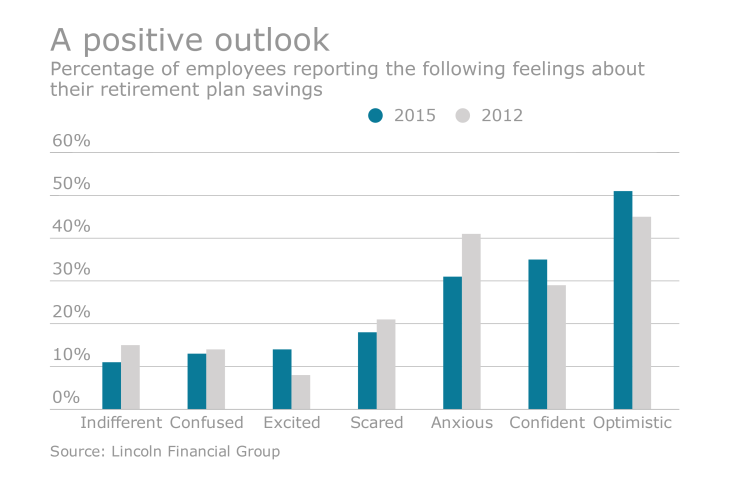It’s not uncommon for employees to experience confusion when faced with the multiple decisions required to enroll in their first 401(k) plan. Even if the plan carrier offers a cadre of educational material and the plan representative has walked employees through the enrollment process and investment selection, many turn to peers for assistance who may or may not be qualified to advise them. However, it’s our responsibility as advisers to offer the proper guidance for individuals who are being bombarded with advice from all directions.
Recently, I sat down with a young employee of a tech company who experienced this exact phenomenon. She was faced with her first opportunity to participate in a 401(k) plan and she was somewhat overwhelmed by the investment choices before her. Prior to our meeting she had spent considerable time on the carrier’s website and had taken full advantage of the training material offered, yet she still lacked confidence in making investment decisions. Her problem was that she had talked to too many people with conflicting advice.

When we sat down to talk, I asked her what was bothering her the most in her decision-making process. She was afraid she would make the wrong investment choice based on the advice she had received from her coworkers. When I asked her what advice she had received, it was clear that most of the information she received was in error. No wonder she was confused. The best thing an employee benefit adviser can do in this situation is to take the time to address each concern and correct misconceptions.
Information elementary to you as an adviser shared with a novice investor is often the first step on the road to gaining confidence in finances. After we had identified what was making her nervous, I shared the keys to developing wealth over time, like selecting a good asset allocation and being fully invested for the long term. I also explained that individual investors have different investment profiles and what’s good for one is not necessarily good for another. Her next step was to determine her own investment profile by completing a questionnaire and comparing her profile to her investment choices.
Also see: “
Her profile revealed she had a “moderate” risk tolerance. The investment she had chosen in her 401(k) was a target-date fund whose allocation matched her profile. Reverting back to the peer advice she had received, she asked me if she could do better by altering her allocation to capture more gain. This led to an explanation of how TDFs were managed and a discussion of risk versus reward. Her potential gain from a more growth-oriented allocation was minimal compared to the potential for loss. Other questions arose from the input she received from others, but after explaining her profile and options to her it was clearer why she shouldn’t change an investment that matches her profile, has a reasonable rate of return and professional management.
Benefits for you and your client
Financial education is not only an easy way to help your clients feel more confident in their investment decisions, it can also lead to more business down the line. Once I had addressed my client’s pressing questions, we went on to discuss her other investments, life insurance and more. As we have been told many times, 70% of our qualified plan income is the result of discovering the other planning needs of the plan participants.
Closely held businesses are like family. If you offer service to one member, they tell everybody in the company what you did for them. When you offer value to one employee, it is repaid in many other ways. Of course, you also have the personal sense of satisfaction that comes from a job well done.
Securities and Investment Advisory Services offered through Woodbury Financial Services, Member FINRA, SIPC, and Registered Investment Adviser Fowler Financial and Woodbury Financial Services, Inc., are not affiliated entities.





